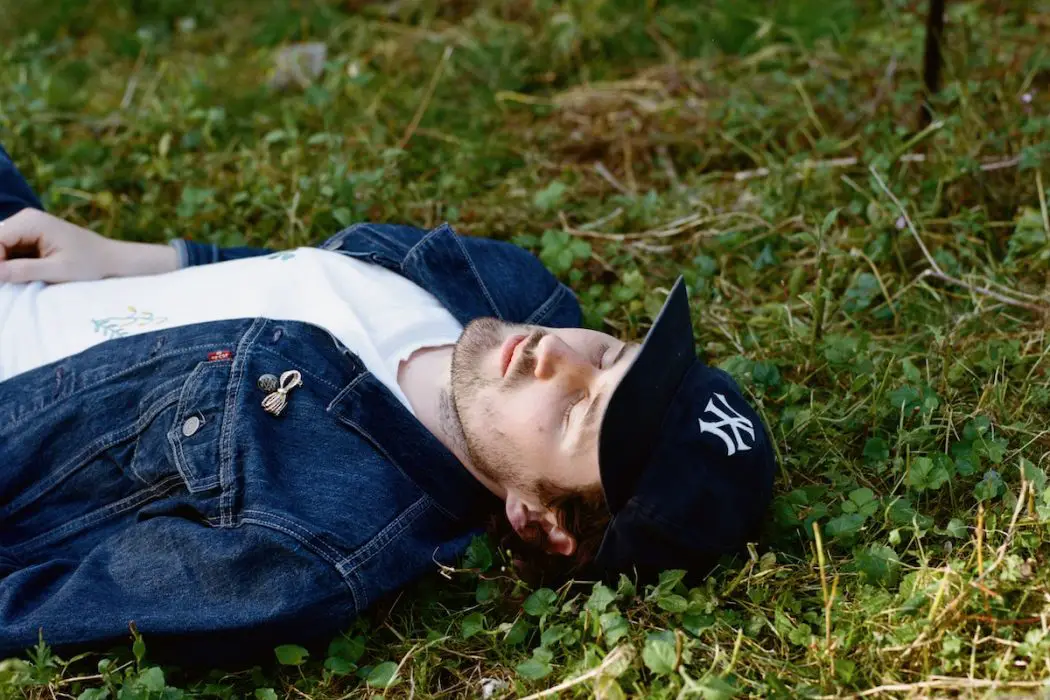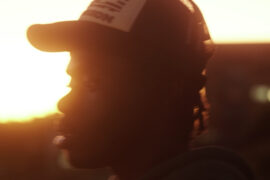A sweet and stirring folk rock seduction, London-based singer/songwriter Campbell Sibthorpe’s debut EP ‘YTown’ is as intimate and delicate as it is expansive and self-assured.
for fans of Fleet Foxes, Iron & Wine, Corey Kilgannon
Stream: “Dandelion” – Campbell Sibthorpe
https://www.youtube.com/watch?v=DcTNwfa3TDY&ab_channel=CampbellSibthorpe
A sweet and stirring folk rock seduction, Campbell Sibthorpe’s sophomore EP YTown is as intimate and delicate as it is expansive and self-assured.
A beautiful 20-minute escape into the artist’s past and present, Ytown marries memory with emotion, experience with indulgence. It’s a profound introduction to a brightly promising new artist we’ll be listening to on repeat as summer fades and autumn’s brisk chill gently settles over our daily lives.
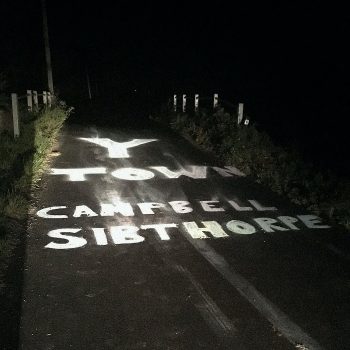
Behind the mushroom trees and clover field
There is a story in the bark unseen
Let it be believed
It was early August and the rain had fell
Even though the summer had only begun
Let it be believed
Let it be believed
We were the brothers of a threadless seam
Upon the shoulders of my Father’s dream
We were so young
There was a fire between the moss and leaves
Underneath the corrugated sheets of teeth
We were so young
We were so young
– “Father Carpenter,” Campbell Sibthorpe
Independently released earlier this year (July 21, 2020), Ytown is a brisk, reflective walk down into Campbell Sibthorpe’s vivid world. The seven-track EP arrives on the heels 2018’s debut EP Sky Lily, itself another glistening folk rock exploration worthy of all ears. A budding singer/songwriter, Sibthorpe is an Australian-born, Bristol-bred, and London-based artist with a heart of gold and a deft poetic touch. His songs come to life with imagery and feeling – each one a story unto itself, but what makes Ytown all the more special is how Sibthorpe crafts a world in seven songs that is as much a dedication to, as it is a memorialization of, his younger years.
https://www.youtube.com/watch?v=OkRcqcOagUo
“Ytown is a journey to adolescence through the small country village I grew up in,” the artist explains. “I wanted to memorialise the home my friends and I had once bemoaned but loved. Threaded through the record you’ll hear the sounds of Ytown: the Strawberry Line Train Station, birds, and my Dad working in his shed, in hopes to drop you straight into the heart of the old village I left behind.”
Ytown is a soft and poignant listen, defined by forlorn, aching vocals and a mix grounded acoustic work and ethereal soundscaping. “I struggle labeling my music truly as folk, so I tend to describe it as folk-rock because at least for the production and performance side of things it gives me more room to expand beyond what people are expecting to hear,” Sibthorpe says. On his latest effort, the artist sounds quite like Nashville singer/songwriter Corey Kilgannon: It’s a blend of the folk talents of familiar names like Fleet Foxes and Iron & Wine, with an eclectic desire for individuality and expression that makes his music feel altogether captivating.
“I’m a big fan of composition through and though,” he explains. “I love a good chorus, taking a song somewhere no one was expecting is exciting to me; it feels like a risk I’m always willing to make. Sometimes songs are there to just give you what you need, and others are there to surprise and grab your attention. I try and find the balance in both of those approaches. What attracts me to songwriting and production is when there is this almost cosmic moment where one minute you’re sitting staring at an empty note pad and the next you’re emptying yourself of everything you’ve wanted to say. You’re riding a wave that you ultimately know will end but you try and keep it going because you know how fleeting moments of inspiration can be. The feeling is otherworldly and always takes me by surprise.”
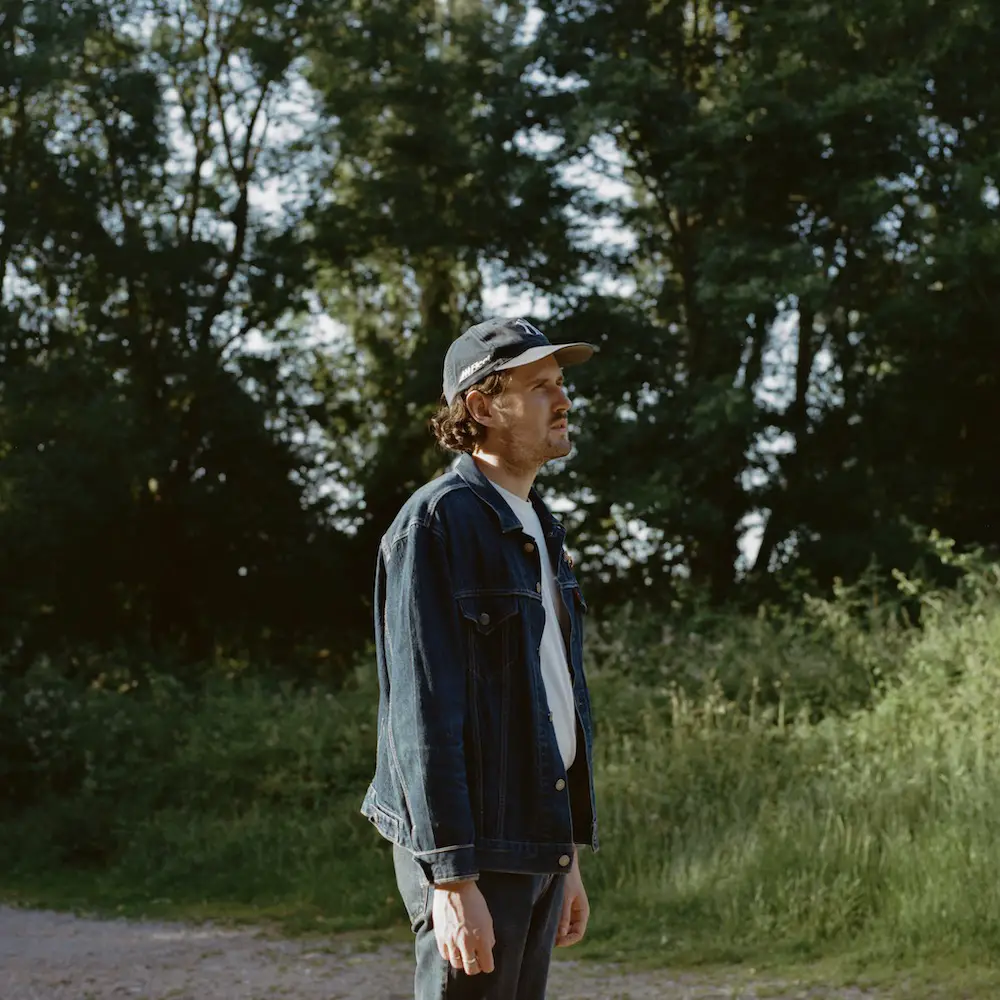
One of Ytown‘s strengths lies in how utterly organic the record plays through. The songs seem to all be a part of a larger dance – each one contributing to an air that is both light and heavy, hopeful and somber. It ultimately glides as a singular unit broken into seven stages.
“I think there are many themes that tie Ytown together, but I think one that runs deep within the tracks is this inherent feeling of loneliness,” Sibthorpe muses. “All the stories of growing up have this ember of knowing there is a change coming around the corner, and as the record grows I feel as if this theme grows right until the end. ‘Ytown’ is posed as a commute so, in many ways, I feel like the theme of traveling and getting older holds the songs together in different shapes and forms whilst remaining part of the same concept.”
Lyrics play an especially important part of Sibthorpe’s music, and in Ytown they take center stage as the artist dwells in portraits of life as he once knew it. He shares: “I’m proud of the line “Father you carved names on to the tree, where history would read the dead and see, that we were once friends” in ’Father Carpenter’, it was the first line I wrote for the song and was the driving force that inspired the rest of the song. I also feel really close to the line “I’ve felt the setting sun, as brothers leave one by one” on ‘Strawberry Line, Pt.2’, I was in a place where everyone had left and I just remember feeling totally lost and these words spoke of that desperation for answers.”

Opening with a serene kiss upon the cheek, the song “The Sun Appeared” introduces listeners to Ytown with birds chirping overhead and tender guitars and vocals alike. From there, the rollicking “Father Carpenter” seizes our ears, driving us fully into this space of isolation and solitude that Sibthorpe can’t help but return to again and again throughout his time in Ytown. The beautifully acoustic “Pastel Porcelain” follows – a hymnal almost, finding the artist blending classical British folk with the rootsy folk of his American brethren across the Atlantic. Gorgeously intense, it’s a reflection on regret, love and failure, and more packed into three lilting, sobering minutes:
Pastel porcelain
I’ve never touched this face
How sweet is your voice
Like Snow delighting on my hand
Quiet corridors
Where I admire the whisper
Through a veil of your hair
It’s auburn and the birds sing
Metalled emotions of this
Silver charm
– “Pastel Porcelain,” Campbell Sibthorpe
The songs “Good Lord” and “Dandelion” follow, each a beautifully multi-colored tapestry of sound and feeling. “Moments like the second half of ‘Dandelion’ were my favourite to write and record,” the artist says. “There’s this release of tension that pours into a swirling instrumental of improvised piano and musically it’s everything I wanted to capture from a chorus that talks about freedom. ‘Good Lord’ was the most enjoyable to work on just because of the nature of its changing passages. There was just a lot of opportunity to lace little musical motifs within the song and try and use the limited amount of instruments I had to create the biggest sound possible.”
If only I could be free
As blossom on the tree
Weathered but still intact
What an inward dream
How does it feel?
How does it feel?
Dandelion oh so bright
What a precious lie
Pulled up without a thought
Empty out this mind
How does it feel?
How does it feel?
I want to breathe
I want to breathe
– “Dandelion,” Campbell Sibthorpe
If you’ve not yet been stunned into moved silence by Campbell Sibthorpe’s art, then it’s in “Strawberry Line, Pt.1” that the artist surely stuns all into quiet repose. A gorgeous instrumental driven by warm piano work and an unassuming guitar, with sweet flourishes injected along the way to wake our minds and keep us alert, this radiant piece of work offers 2 1/2 minutes of uninterrupted musical beauty.
“The Strawberry Line in the 1800s was an old carting line taking strawberries to London and so it was incredibly poignant that the record ends at the station with this introspective farewell to my friends who were leaving for the city,” Sibthorpe shares. “Where I grew up was small and the railway line was the divider between the two sides of the village. It was just the perfect metaphor for the escapism I longed for and the separation I felt. I wanted the last two tracks to feel like that moment of silence you sometimes have whilst watching the train pull in before saying goodbye. The sound of the trains and me walking to my car are like two worlds parting.”
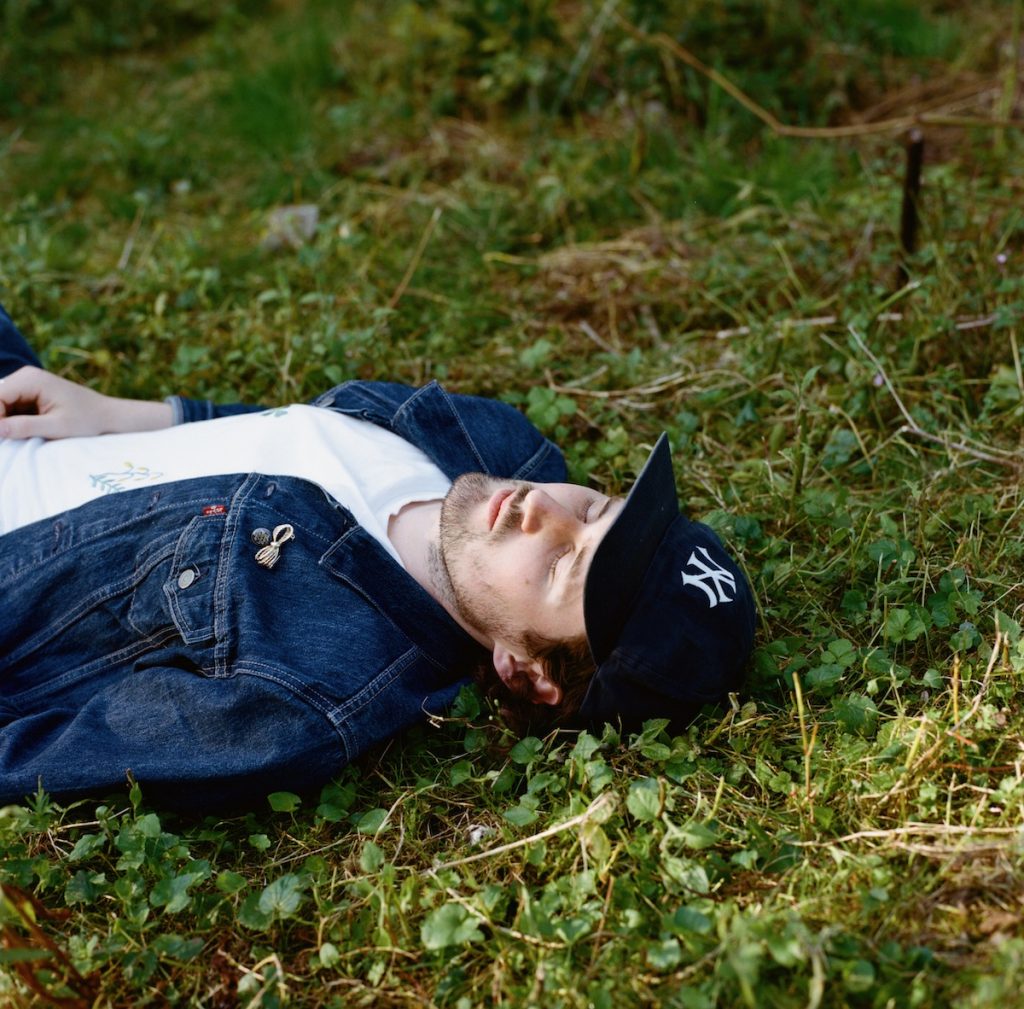
“Ultimately, I hope [listeners] connect with the idea of the record being a commute to adolescence,” Sibthorpe continues. “I definitely feel like the record achieves the goal when listeners connect with the stories and apply them to their own experiences and memories. It’s partly the reason why I chose to name the record Ytown rather than using the actual name of the village I’m referring to; I want people to have the opportunity to find the stories relatable and apply them to their own Ytowns.”
It’s a testament to Campbell Sibthorpe’s songwriting abilities that he has managed to create a journey down memory lane that is not necessarily his own, but rather one that can be shared and felt by all who listen to his work. Ytown is muted and alive: A record that inspires us to embrace our histories for what they are – happy and sad, painful and joyous. Our past is only growing; we can either cherish it, or let it go. For Sibthorpe, Ytown represents the former: For better or worse, this record stands as a testament to a life lived, and a childhood outgrown.
Experience the full record via our below stream, and peek inside Campbell Sibthorpe’s Ytown with Atwood Magazine as the artist goes track-by-track through the music and lyrics of his debut EP!
— —
:: stream/purchase Ytown here ::
Stream: ‘Ytown’ – Campbell Sibthorpe
:: Inside Ytown ::
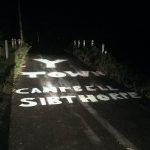
— —
The Sun Appeared
When I started working on Ytown I wanted to tie the tracks together within an environment that gave each one space to live but also kept them connected. As the record started to take shape I could see they were all lining up chronologically and, as I’d already had the concept of this EP being a commute, it all started to fall into place.
I was looking for a way to start the journey through Ytown and I was trying to find something that felt almost embryonic to give the record a sense of new life. I’d been scrolling through old voice notes and stumbled upon an old recording of a song that I’d never used. The voice note had this small opening passage that encapsulated everything I was looking for and wanted to explore in the record.
Father Carpenter
This song is an ode to my father who was a carpenter and furniture maker while I was growing up. It’s about the time we spent together watching bushcraft shows, building fires, and learning to live off the land. It was around this time that my friends and I started heading up to the woods after school to build fires and shelters using everything I’d learned from the night before. It was a time in which everything felt so simple and where I felt most free.
The song itself is retrospectively written from my thirteenth birthday I had in the woods with my friends. It revolves around a moment during the birthday where my dad started to carve our initials into a tree whilst we were cooking food. When I came to write this song, I’d been driving through the country moors back and forth to work and this melody came into my head. I pulled over and started recording it onto my phone. One of the first lines that came to me was the memory of my dad carving our initials and I started to imagine what people might have thought when they passed this tree, now grown over and old. The song took shape from there and I wrote the whole song from a place of casting my mind back to spending countless hours making fires in the rain. It was one of those really special moments where I felt like everything aligned and I’d found what I’d been searching for.
Pastel Porcelain
This song was one of the first tracks I wrote for the record and at the time it was more of a stand-alone track, but as the EP started to pull together it fitted in place almost as a bridge to the second half of the record.
When I started to write this song it had many points of reference. It was about love, it was about failure, it was about regret and wanting to repeat things differently. The lyrics went through many versions whilst writing but ultimately the words never seemed to fit with the song. One day I was admiring my mother’s charm necklace and I marveled at the collection of memories she had around her neck. They were all significant moments in her life that she wanted to remember, and so this idea became the centerpiece to the song and the memories I was trying to convey.
Good Lord
I’d come to a point in my life where I was very confused by who I was. I’d become numb to people’s advice or well wishes and though the commentary on what I should or shouldn’t be doing with my life was always well-intended, it would never make sense or sit right to me. I was caught up waiting for a magical moment to pull me out of a lull and give meaning to the path I was on, but ultimately it was me who needed to figure this out.
Like many of the songs in this record, this song started as one idea and grew into another. A lot of the early drafts weren’t fully addressing the issues I was working on in real life, I was just skipping around them or finding ways to sugarcoat them. The song was like therapy for me. I’d rewrite sections when I felt like I finally knew what I wanted to say and leave others until the right time came. The song ended up taking a long time to write because I was always trying to find the right words to communicate the growing exasperation to find some direction in my life. When I came to a place where I was comfortable with not knowing all the answers, the song just stopped needing to be rewritten and I was left with words that spoke of everything I’d tried to overcome and everything I believed might one day be resolved.
Dandelion
This song is directly in response to everything explored in ‘Good Lord’. It was written from a place of feeling pretty bruised by life and looks more at the consequences of my indecisions whilst trying to tackle mental health issues I was trying to overcome.
I’d been watching my dad remove the dandelions from our garden one day and the irony of this event struck me. Depending on when you try to remove dandelions, you either end up spreading their seeds further and new flowers appear or you never get the whole root when pulling them up so they grow back in no time. This idea was everything that I felt I was doing wrong. I was trying to get rid of the issues but effectively never getting to the heart of it. The abrupt change that comes in the chorus and instrumental was entirely the freedom I was looking for. This off-kilter moment, for me, speaks to the longing for escape I was looking for.
Strawberry Line, Pt.1
I often feel that an instrumental track can offer a moment to pause or reflect in a way that other tracks may not be able to provide. I wanted to give Ytown a moment to take stock of all that had come before. The song sits in a place where the journey through the village has come to an end, and that the person who I once was is no longer. I wanted to have this chromatic piano line over a steady guitar as a way to show the divide between comfort and confusion. The brash drums and train horns are like the arrival of change and unite the overwhelming sense of isolation I was beginning to feel.
Strawberry Line, Pt.2
As Pt.1 finishes with the sound of the train arriving, Pt.2 begins with its departure. The journey through Ytown ends with a farewell to my friends who were all leaving for the city. When I came to write this song it was the last thing I had to say. My friends had left for the city and now I was on my own watching the months drift by and beginning to feel increasingly isolated. Everything felt incredibly vague in those first few months.
This song ended up being one of my most personal. I’d been singing stories about the past and suddenly I was looking at myself in the present and I was convinced I too could end up being a story people told. This song spoke to the life I’d led and the beginning of another. It felt like the perfect way to end the record on a sort of cliffhanger.
— —
:: stream/purchase Ytown here ::
— — — —

Connect to Campbell Sibthorpe on
Facebook, Twitter, Instagram
Discover new music on Atwood Magazine
? © Jonathan Cherry
:: Stream Campbell Sibthorpe ::

